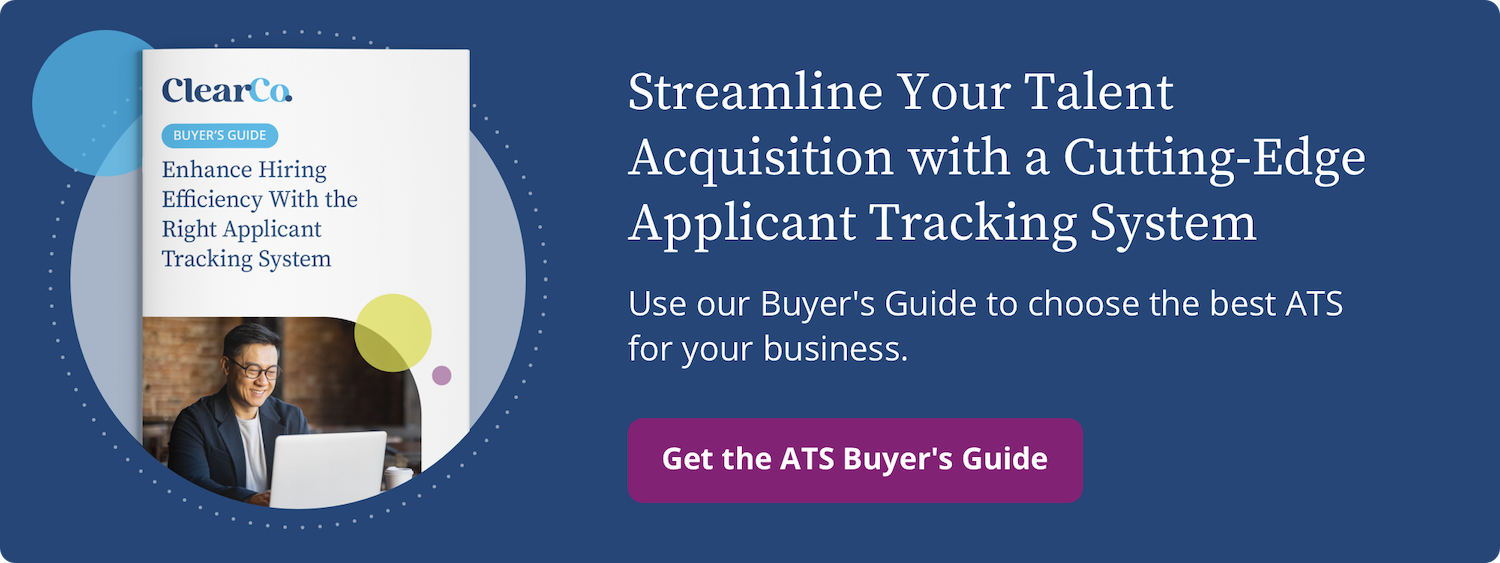The 2020s are shaping up to be a decade of consistent change for nearly every aspect of human resources, employee compensation included. Rapid salary increases, the rise of pay transparency laws across the globe, and companies sweetening the deal with expanded benefits and out-of-the-box perks have completely reshaped the talent market. If your recruitment efforts are still relying on outdated or undefined compensation management strategies, chances are it’s already costing you.
You need more than just competitive salaries to attract and retain top talent. You need a cohesive compensation management strategy — one that goes beyond paychecks to deliver total compensation packages that meet employee needs and expectations.
A smart, modern approach to compensation planning helps you stay ahead of the competition and build a workforce that thrives. Learn more about why strategy is critical and how it impacts recruitment and retention.
Why Compensation Strategy Matters
The fact that compensation is a critical part of talent management sounds like a no-brainer. After all, how many of us would work if we weren’t paid? But a robust compensation strategy is about so much more than numbers on a paycheck. It’s a reflection of your company’s values, a driver of employee satisfaction, and one of the most visible pillars of your employer brand.
Think about it: if compensation were just about the dollar amount, everyone would accept the highest salary amount. But they don’t — they look at total compensation, including the benefits package, perks, growth opportunities, and workplace culture. An effective compensation management strategy considers all of these elements and sends a clear message about who you are as an employer and what you stand for.
But unfortunately, lots of companies are operating with outdated strategies or none at all. Without it, you run the risk of internal pay inequities, misaligned salaries, and, of course, the loss of candidates and employees. It can also erode employees’ trust in your organization and make it harder for you to build a strong, loyal workforce.
Deep Dive: What Is Compensation Management?
Get up to speed on compensation management with our guide for HR.
On the other hand, a modern, data-driven compensation philosophy keeps your pay practices competitive and agile. Leveraging employee compensation management tools enables you to tap into market data and leverage analytics. With that insight, you can close salary gaps, offer rewards and incentives, and create packages that appeal to your ideal employees.
Your compensation strategy is an opportunity to set your organization apart and align business goals with the needs of the people who help you achieve them. Invest in a thoughtful, adaptable approach to employee compensation management and set the tone for a workplace where people want to stay, grow, and succeed.
Win Top Talent With Smarter Compensation Strategies
Once upon a time, compensation conversations didn’t begin until later in the hiring process, and benefits packages usually consisted of little more than health insurance, 401(k)s, and paid time off. For some roles, compensation might include bonuses, equity, or stock options. But, as the adage goes, the times are changing.
With an increasing number of pay transparency laws taking effect around the world in an effort to promote pay equity, candidates don’t want to wait when it comes to the salary conversation. Most of them won’t even consider companies that aren’t practicing pay transparency. 85% of college seniors and recent graduates said they’re less likely to apply to jobs that don’t include a salary range.
Competitive employers are responding, helping make pay transparency the norm even when it’s not the law. 57% of high-performing companies include salary ranges in job descriptions, whether or not it’s required. Sites like Glassdoor and Payscale offer even more transparency, allowing candidates to see salary and benefits information submitted by real employees.
In addition to pay transparency, many companies have expanded benefits and diversified employee perks to attract the very best. Although orgs have slowly returned to the office post-pandemic, hybrid and remote work options are far more common today. We’re seeing a wider variety of perks, like:
- Wellness stipends
- Professional development opportunities
- Childcare assistance
- Student loan or education reimbursement
- Pet insurance
- Mental health days
The list could go on and on, and with so many options for added benefits, it’s easy to spot employers that don’t measure up. If your compensation isn’t keeping up with market trends, or if your benefits packages feel outdated, you’re almost certainly losing strong candidates before they’ve even clicked “Apply.” Not to mention, you’re probably wasting time screening applicants who are under- or over-qualified for the role, too.
Remain competitive in recruitment with compensation management software. It helps you build equitable, transparent pay structures and benefits packages, keep up with current pay trends, and make better long-term hiring decisions. In today’s hiring landscape, where pay transparency and modern benefits are reshaping expectations, standing out starts with how you approach compensation.
From New Hires To Seasoned Pros: Compensation Management Strategies That Retain
Your compensation strategy is essential for attracting new employees and for keeping your existing ones engaged and loyal. It’s no surprise that better pay and benefits are consistently among the top reasons employees leave for new roles. But it might surprise you to hear that prior to 2020, only 41% of people said compensation was very important, a number that’s now risen to 54%.
Consider that increase alongside the fact that experts estimate 42% of employee turnover is preventable. Ensuring your compensation strategy is in line with the market, as well as transparency around how pay and benefits are set and compensation decisions are made, shows employees they’re valued. It can be the difference between losing your high-potential, high-performing people and watching them thrive at your company.
Keeping pay competitive is just one aspect of a retention-boosting compensation strategy. Incentivize loyalty with performance-based bonuses or equity options. Support employees’ growth with a budget for learning and development programs or flexible work arrangements. You should also conduct regular pay audits so you can quickly rectify any pay inequities.
Leverage these strategies to reduce preventable turnover, build trust, and retain an engaged, satisfied workforce.
A Strong Compensation Management Strategy Is Your Competitive Advantage
Your team is your greatest asset, and you need a strong, forward-thinking compensation strategy to ensure you attract the best talent and keep them engaged. From winning over candidates with competitive offers to retaining seasoned employees with tailored incentives, your approach to compensation can define your company’s success.
Don’t lose top talent with outdated practices. Invest in the tools that power a dynamic employee compensation management strategy that doesn’t just keep up, but leads the market.


.png)
